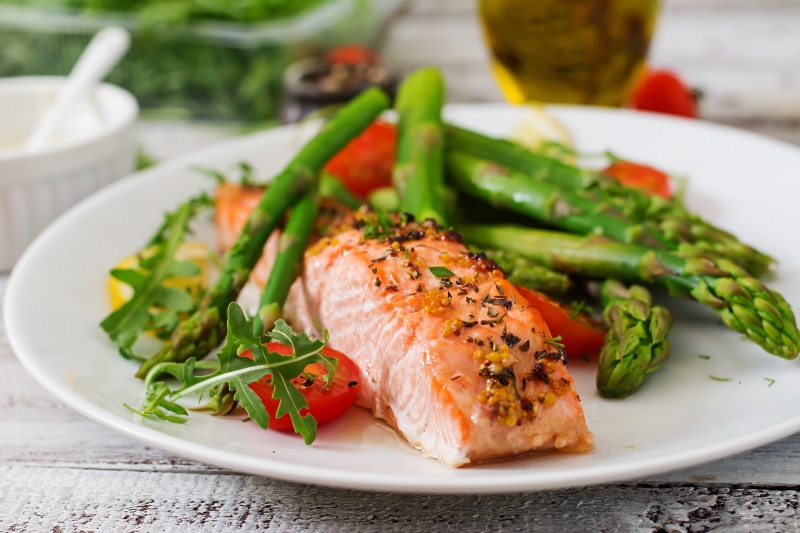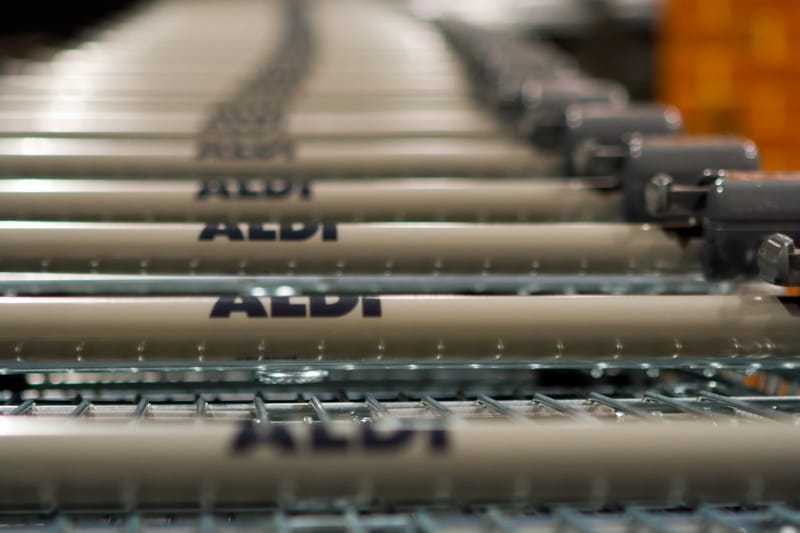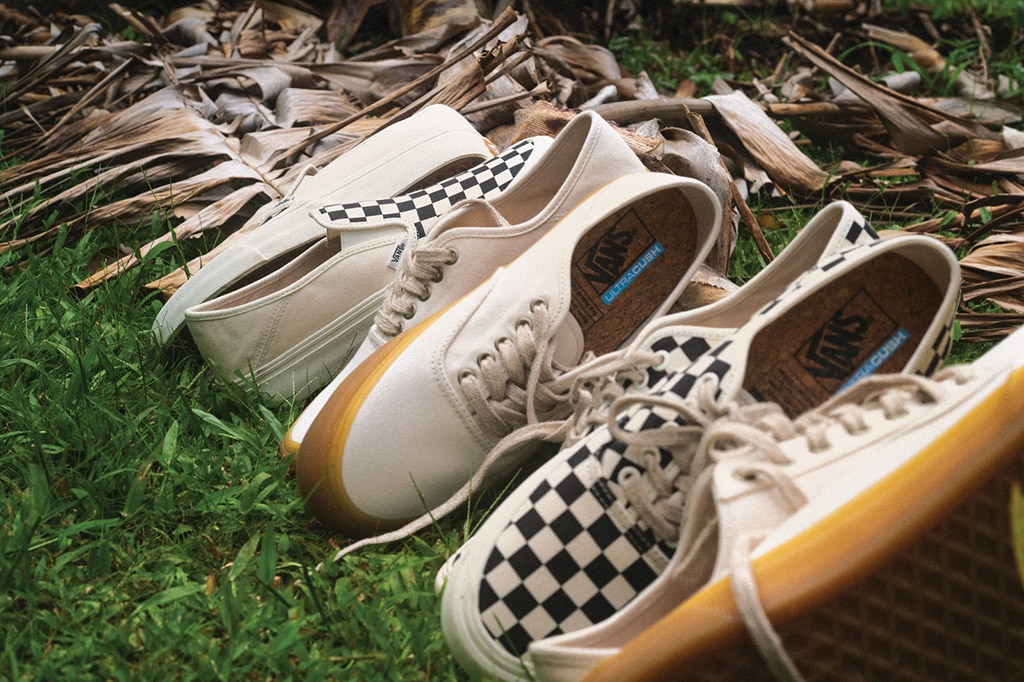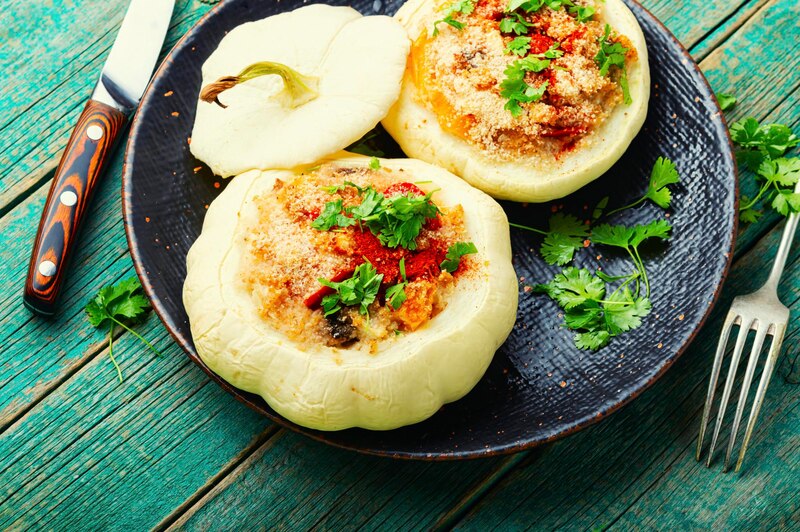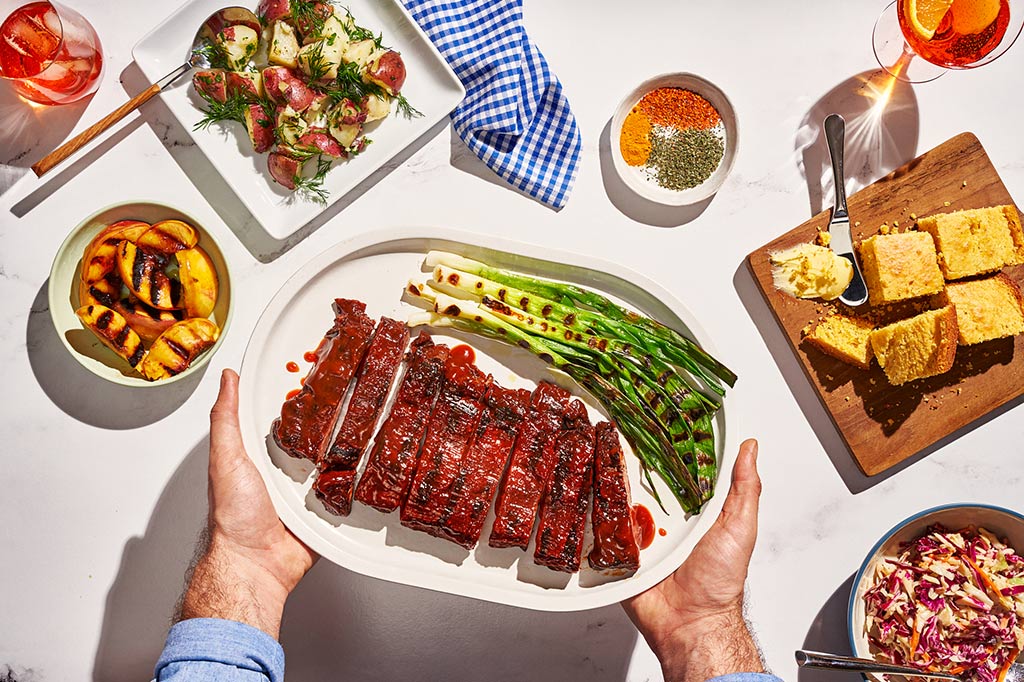The first whole-cut vegan salmon filet from Revo Foods, which is manufactured from algae and pea protein, is scheduled to hit shop shelves the following year.
Revo Foods, a vegan food technology business located in Vienna, recently showcased its first “super realistic” whole-cut plant-based salmon. The product is anticipated to be available for purchase in stores at the beginning of 2023. The new product, which is manufactured with the help of a technology known as 3D food printing, has been designed to simulate the feeling of eating whole-cut fish filets but does not involve the killing of any fish in the process.
Few alternative seafood products have been able to replicate the experience of eating whole-cut filets, even though this is how the vast majority of conventional fish is consumed. “generation 2.0” refers to the first whole-cut vegan salmon filet that was developed by the scientific team at Revo Foods. This product was the result of more than two years of study into novel processing technologies and ingredient combinations. Pea protein and algal extracts are used to make the new whole-cut salmon, which results in a product that is high in protein and omega-3 fatty acids, in contrast to the goods of the first generation, which were mostly manufactured with tofu. It has a flavor and consistency that are very similar to that of traditional salmon, and it can be served in the same manner as traditional fish (including frying, cooking, and steaming). This product was developed with the help of 3D food printing technology. The company has already submitted two patent applications for innovative technology that may make such vegan fish items that are whole-cut.
During a tasting event that took place at Budapest Bagels in Vienna a year ago, Revo Foods introduced its first 3D-printed vegan smoked salmon product. This event took place at the same time. The product, which was given the name “Salmon With Attitude,” not only replicated the flavor and appearance of seafood but also had the appearance of authentic smoked salmon. It was created with 3D food printing technology. Similarly, components such as pea protein, algal extracts, and dietary fibers are mixed together to produce a foundation that is rich in protein, omega 3, and B12. The breakthrough vegan fish that Revo created was presented in the form of a smooth smoked salmon spread. These initial products are already available for purchase in sixteen different countries across Europe, including grocery stores in Austria and Germany.
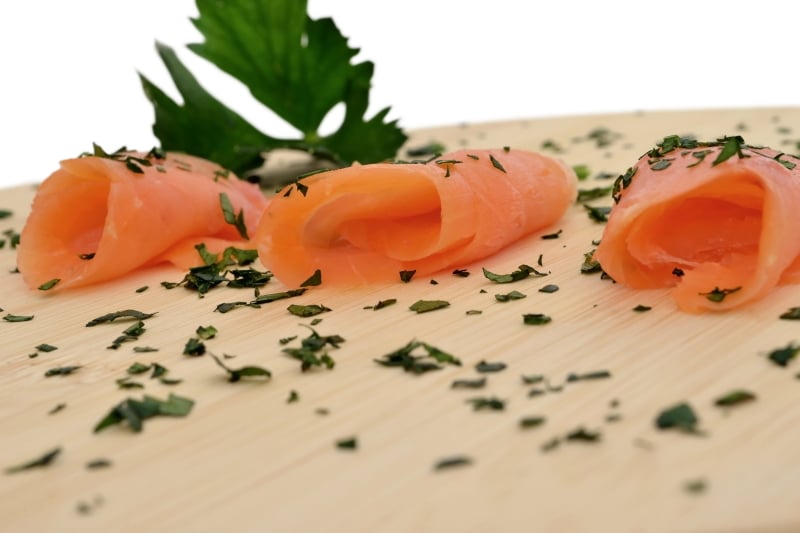
A small group of guests was treated to a three-course meal cooked by Austrian chef Siegfried Kropf, who holds a Michelin star, during the first tasting event that was held in Vienna the previous month to debut the new salmon filet. Appetizers featured on the menu included smoked salmon slices and Revo’s newly introduced fish spreads. The “game-changer” salmon filet, which was fried and served with asparagus, cherry tomatoes, potatoes, and hollandaise sauce, was the centerpiece of the meal, but the major attraction was the salmon itself. The framework comes very close to becoming ‘too perfect.’ One of the attendees asked, “Are you positive that this is vegan?”
What exactly is “3D printing” of food?
The cutting-edge 3D food printing technology is utilized by Revo Foods in the production of its game-changing plant-based seafood substitutes. The method of creating three-dimensional items from a digital file is referred to as “3D printing,” and it is also known as “additive manufacturing.” Additive procedures are used to bring a 3D-printed thing into existence. This means that the object is produced by piling successive layers of material on top of one another to form it.
In the past, the production of items made of plastic was the primary emphasis of 3D printing; but, more recently, it has been applied to the fabrication of edible items. The additive manufacturing of food involves placing food into three-dimensional objects in a layer-by-layer fashion to create the final product. Using syringes made of food-grade material to hold the printing material, which is then deposited layer by layer through a nozzle made of food-grade material, is the most frequent method for accomplishing this task. The uniqueness of 3D food printing is that it can be performed in a much more controlled manner, resulting in goods that could not be made in any other way. While 3D food printing is comparable to previous ways of producing shaped foods, the main difference is that it is performed.
This method of utilizing 3D printing technology offers endless possibilities in terms of texture and flavor, and this can be especially useful when developing meat and fish substitutes — as demonstrated by Revo Foods with its high-quality smoked salmon slices and structured salmon filets — as well as other applications.
Revo Foods’ ultimate goal is to put a stop to overfishing, the deterioration of the seas, and the presence of harmful waste chemicals like mercury and polychlorinated biphenyls (PCBs) in seafood. This will allow them to fulfill their objective. A recent statement made by the company on Facebook stated, “At Revo Foods we have a clear vision: Overfishing is a thing of the past.” “Join us in our efforts to create a more sustainable future with seafood that is derived from plants!”
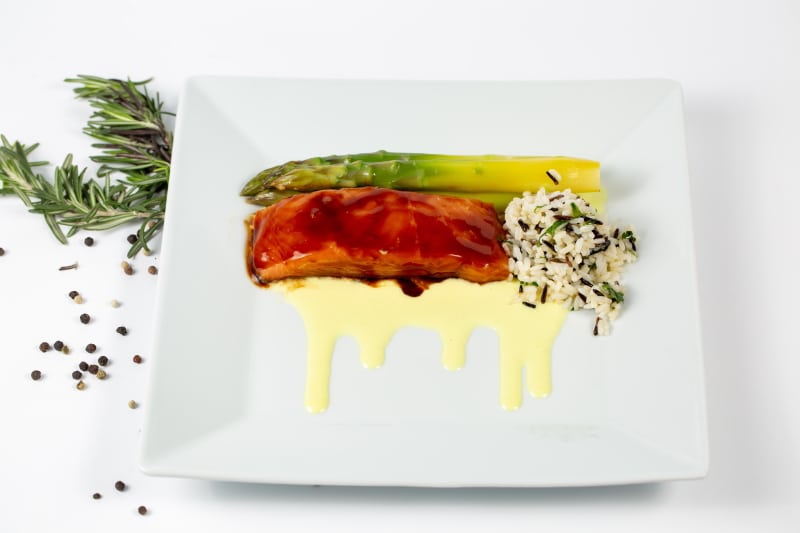
Whole-cut vegan fish has arrived
One of the first firms in the food technology industry to develop a whole-cut vegan salmon filet was Revo Foods. Plantish, a startup company based in Israel, presented its own prototype at the beginning of this year. Dubbed “Plantish Salmon,” the product was manufactured with patent-pending 3D-printing technology to imitate its fish counterpart in every way, including a flakey texture, a buttery mouthfeel, and a fibrous structure. Plantish Salmon also has a patent-pending. To compete with the nutritional value of fish, the vegan salmon filets have a high concentration of protein, as well as Omega-3 fatty acids, Omega-6 fatty acids, and B vitamins.
Recently, Plantish was successful in acquiring seed finance for $2 million, which will allow the company to scale the manufacturing of its whole-cut salmon and make it a viable and cost-effective alternative to fish in restaurants. The company, which has been in business for one year, has plans to exhibit its lifelike fish at a few select pop-ups before the end of this year, and it hopes to have a wider debut by the year 2024.
Ofek Ron, the Co-founder and CEO of Plantish, said in a statement that the company’s mission is to “save the oceans and eliminate the need to consume marine animals by providing more sustainable, more nutritious, and more delicious fish options.” “We exist to save the oceans and eliminate the need to consume marine animals.” “Our goal is to become the most successful seafood brand in the world without causing any harm to any fish in the process.”

